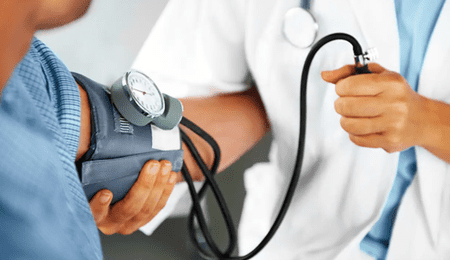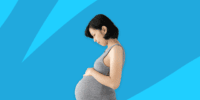High Blood Pressure Or Heart Problems

What is high blood pressure
High blood pressure, or hypertension, is a condition in which the force of the blood against the artery walls is too high. It can occur at any age, but the definition of what is considered high blood pressure can vary based on a person’s age.
For adults 18 and older, a blood pressure reading of 130/80 mmHg or higher is considered high. For adults 65 and older, a reading of 140/90 mmHg or higher is considered high.
For children and adolescents, the definition of high blood pressure is based on their age, sex, and height. A healthcare provider will use a chart to determine what is considered high blood pressure for a specific child.
It is important to regularly check blood pressure and work with a healthcare provider to manage it, as uncontrolled high blood pressure can lead to serious health problems such as heart attack, stroke, and kidney disease.
| Age Group | Normal Blood Pressure | High Blood Pressure |
|---|---|---|
| Infants (0-1) | 70/50 – 100/70 | >100/70 |
| Children (1-11) | 90/60 – 110/70 | >110/70 |
| Teens (12-17) | 95/60 – 120/80 | >120/80 |
| Adults (18-64) | 90/60 – 120/80 | >120/80 |
| Seniors (65+) | 90/60 – 120/80 | >140/90 |
What are reasons for high blood pressure
There are several possible causes of high blood pressure, also known as hypertension. Some of the most common include:
- Genetics: If you have a family history of high blood pressure, you may be more likely to develop the condition yourself.
- Age: Blood pressure tends to increase as we age.
- Lifestyle: Poor diet, lack of exercise, smoking, and excessive alcohol consumption can all contribute to high blood pressure.
- Stress: Chronic stress can raise blood pressure levels.
- Medical conditions: Certain medical conditions, such as kidney disease, sleep apnea, and hormonal imbalances can cause high blood pressure.
- Medications: Some medications, including birth control pills, decongestants, and nonsteroidal anti-inflammatory drugs (NSAIDs), can increase blood pressure.
- Pregnancy: Pregnant women are at increased risk for developing high blood pressure.
It is important to note that sometimes high blood pressure has no known cause, and is referred to as essential hypertension.
How to reduce high blood pressure
There are several ways to reduce high blood pressure:
- Eat a healthy diet: A diet rich in fruits, vegetables, whole grains, and low in salt and fat can help lower blood pressure.
- Exercise regularly: Regular physical activity can help lower blood pressure. Aim for at least 30 minutes of moderate-intensity exercise, such as brisk walking, most days of the week.
- Lose weight: If you are overweight or obese, losing weight can help lower blood pressure.
- Limit alcohol consumption: Drinking too much alcohol can raise blood pressure. If you drink alcohol, do so in moderation – no more than two drinks per day for men and one drink per day for women.
- Quit smoking: Smoking damages blood vessels and raises blood pressure. Quitting smoking can help lower blood pressure.
- Reduce stress: Chronic stress can raise blood pressure. Try to manage stress through relaxation techniques such as deep breathing, meditation, or yoga.
- Take medications as prescribed: If your blood pressure is not well-controlled with lifestyle changes alone, your doctor may prescribe medications to help lower it. It is important to take these medications as directed.
Foods to avoid
Nutrition nowadays is the leading force for curing different diseases, especially coronary health issues. The low quality of the food will make your body have something damaged, and it won’t work properly.
Consumption of large amounts of sodium is the key reason for poor health and serious problems. Because of this, you need to avoid these 15 foods and keep your health on point:
- Salt: Consuming too much salt can cause an increase in blood pressure. It is recommended to limit salt intake to no more than 2,300 mg per day.
- French fries: Are you aware of the fact that average portion of French fries contains up to 270 mg of sodium and 19 grams of fat? Consuming more sodium than the necessary amounts can cause water retention and gain weight.
- Processed and packaged foods: These foods often contain high amounts of salt and should be avoided.
- Alcohol: Excessive alcohol consumption can lead to high blood pressure. It is recommended to limit alcohol intake to no more than one drink per day for women and two drinks per day for men.
- Caffeine: Consuming large amounts of caffeine can cause a temporary increase in blood pressure.
- Saturated and Trans fats: Foods high in saturated and trans fats, such as fried foods and processed meats, can increase cholesterol levels and contribute to high blood pressure.
- Sugar: A diet high in sugar can increase the risk of developing high blood pressure.
- Soft drinks: Study conducted by the America Heart Association showed that sodas and fuzzy drinks are loaded with artificial sugar. This type of sugar is one of the major culprits for hypertension.
Talk to a healthcare professional about the best diet for managing high blood pressure and to make any necessary changes under their guidance.
Treatments to cure high blood pressure
There are several medical treatments that can help to lower high blood pressure:
- Medications: There are several types of medications that can be used to treat high blood pressure, including diuretics, beta blockers, ACE inhibitors, and calcium channel blockers. These medications work by decreasing the amount of salt and water in the body, relaxing the blood vessels, and decreasing the production of hormones that cause the blood vessels to constrict.
- Lifestyle changes: Making changes to your diet and lifestyle can also help to lower high blood pressure. This may include eating a diet low in sodium and high in fruits, vegetables, and whole grains, quitting smoking, reducing stress, getting regular exercise, and maintaining a healthy weight.
- Surgery: In some cases, surgery may be necessary to treat high blood pressure. This may include procedures to remove plaque from the arteries or to repair or replace damaged blood vessels.
- Alternative therapies: Some people may find relief from high blood pressure with alternative therapies, such as acupuncture, herbal remedies, or relaxation techniques. It is important to discuss these options with a healthcare provider before starting any alternative treatment.
Medications
There are several medications that can be used to treat high blood pressure, also known as hypertension. These medications fall into several categories, including:
- Diuretics: These medications help the body to get rid of excess salt and water, which can help to reduce blood pressure. Examples include thiazide diuretics and loop diuretics.
- Beta blockers: These medications block the effects of the hormone adrenaline, which can help to reduce heart rate and blood pressure. Examples include metoprolol and propranolol.
- Angiotensin-converting enzyme inhibitors (ACE inhibitors): These medications block the production of a chemical that narrows blood vessels, leading to a decrease in blood pressure. Examples include lisinopril and captopril.
- Angiotensin II receptor blockers (ARBs): These medications block the action of a chemical that narrows blood vessels, leading to a decrease in blood pressure. Examples include losartan and valsartan.
- Calcium channel blockers: These medications relax blood vessels and increase the flow of blood, leading to a decrease in blood pressure. Examples include amlodipine and diltiazem.
- Alpha blockers: These medications relax blood vessels and increase the flow of blood, leading to a decrease in blood pressure. Examples include doxazosin and prazosin.
It is important to note that high blood pressure is a chronic condition that requires ongoing medical management. Medications should be taken as prescribed and lifestyle changes, such as a healthy diet and regular exercise, should also be implemented to help manage and reduce blood pressure.









